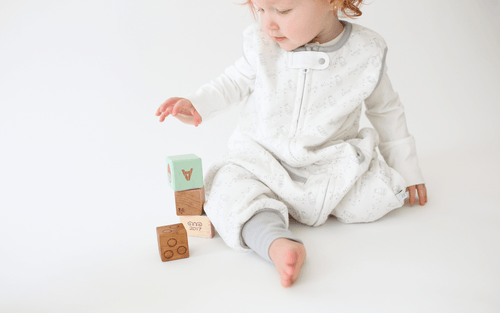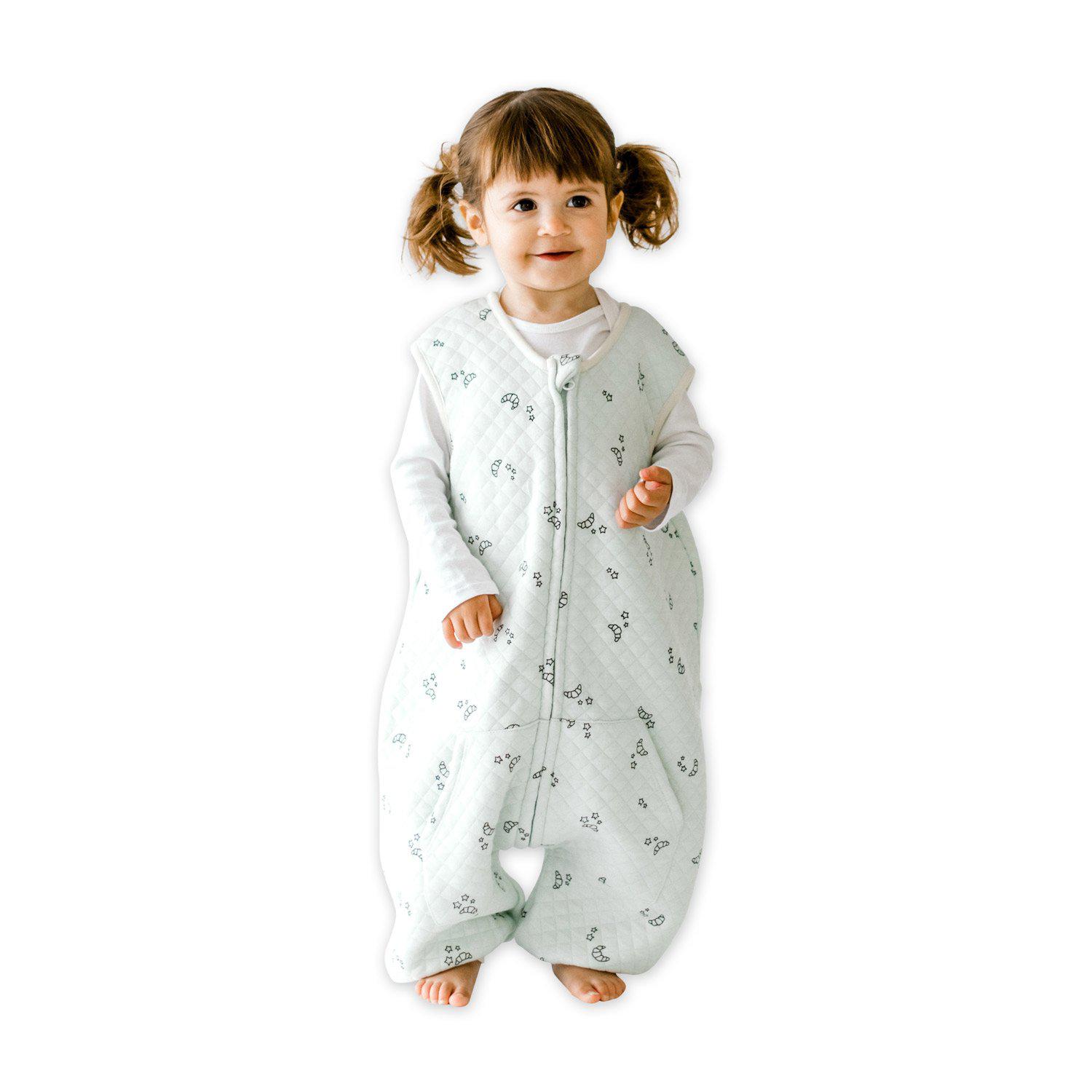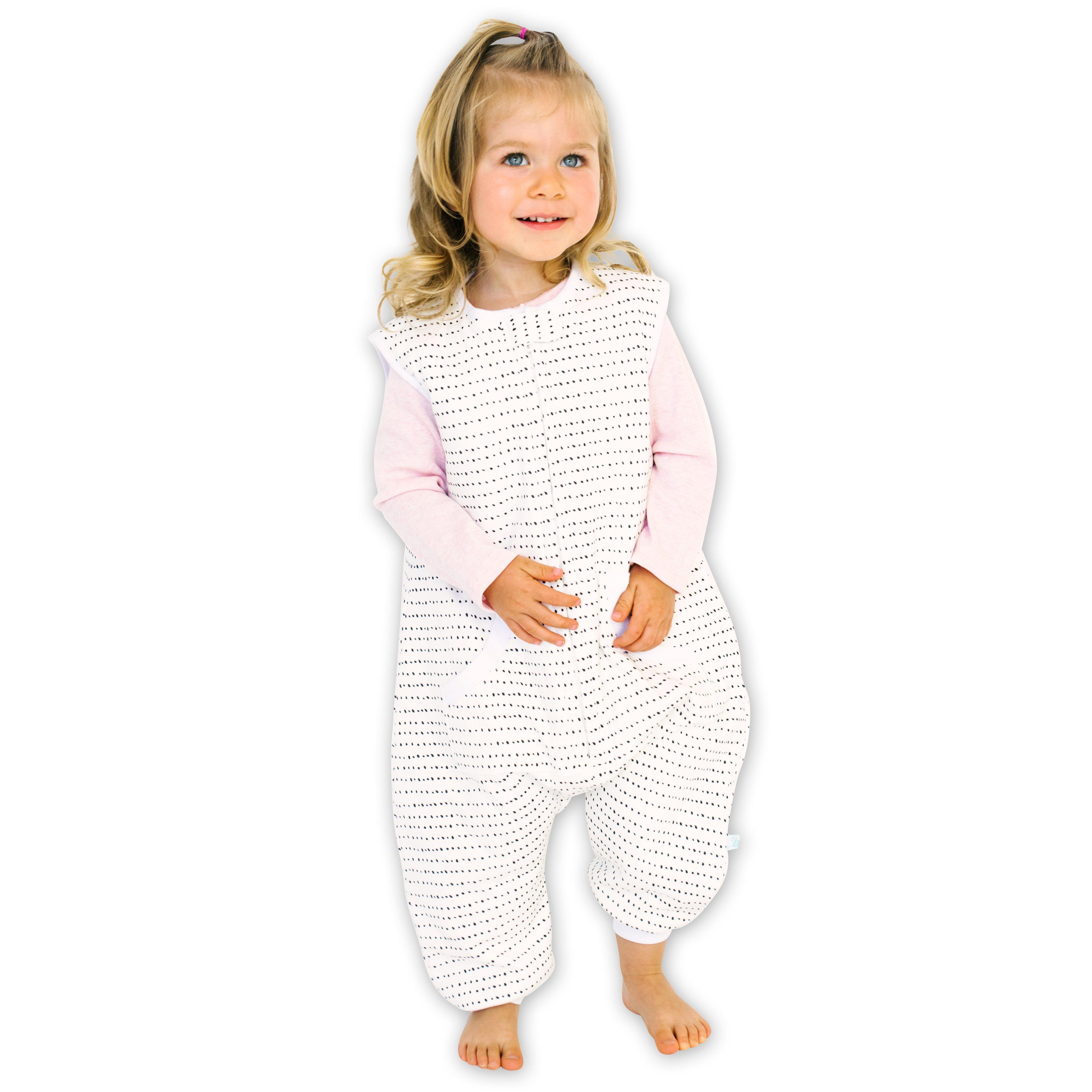Nutrition And How It Affects Toddler Sleep copy
By: Desiree Baird

Nutrition plays an important role in sleep, especially for babies and toddlers. When your baby relied solely on milk for nutrition, you may have been following a routine of eat, activity and sleep. This was important at the time to ensure that your little one wasn’t associating feeding with sleep (AKA: feeding to sleep association).
However, once your toddler starts eating whole foods, you may have questions such as:
How often should you feed her/him? At what times of the day? What types of foods encourage the best sleep possible? Read below to find out how nutrition may affect toddler sleep!
How does nutrition influence sleeping patterns in toddlers?
Your little one should be offered 3 meals a day, and 2 snacks with milk / water. Milk and water are the best drinks for your little one. It is widely recommended to avoid sugary drinks and juice as much as possible.
Offering your child regular meals and snacks throughout the day with lots of fluids may prevent behavioral difficulties (in toddlers) due to low blood sugar or / and dehydration.
When it comes to sleep, it’s recommended to offer lunch about 45 – 60 minutes prior to naptime, and to offer dinner approximately 1.5 – 2 hours prior to bedtime.
This will ensure that your little one’s tummy is full, but not uncomfortably full going to bed. If your little one does not like what is for dinner, try to offer a small snack about an hour prior to bedtime. Bananas, yogurt, whole wheat toast with peanut butter (for littles with no allergies or sensitivities) or a bowl of whole-grain cereal works great!
Additionally, children thrive on routines, especially toddlers. It helps them feel secure, so they know what is happening next in their day. Having meals and snacks around the same time every day is also equally as beneficial for their body. Here’s an example of a day schedule for sleep and mealtimes for an 18-month old:

A full stomach does not necessarily translate to a better nap
Believe it or not, a full stomach doesn’t necessarily translate to better sleep. Your child’s appetite will ebb and flow just like for us adults. Of course, you should offer your child lunch before nap time, but if they refuse lunch or they only take a few bites don’t fret — it does not mean that their nap quality will be affected. In fact, a toddler needs very little food to fill their small stomach.
So, the next time your toddler turns their nose up at lunch, proceed with your day and get ready for naptime shortly after.
Foods for better sleep and foods you should avoid
Certain foods are hard on the digestive system and can pose some sleep issues for your little ones. On the flipside, there are sleep inducing foods that are high in tryptophan and help promote a better night’s rest. Tryptophan, which I’m sure you already know is in turkey, has a calming effect on the brain making it easier to fall asleep and stay asleep. The body converts the amino acid into serotonin and melatonin.
Additionally, foods that are high in complex carbs and have small amounts of proteins will also improve sleep. Dairy products (particularly milk) are jam-packed with tryptophan and a great option to have before bedtime. Just be sure to make sure your little one brush their teeth afterwards, milk can cause tooth decay if consumed before bedtime.

Below are a few examples of sleep -inducing foods to offer your toddler as part of their dinner (or pre-bed snack):
- Whole grain toast with a pat of butter
- Whole grain cereal (without sugar)
- Whole grain pretzels, crackers
- Whole grain bagel or pasta
- Bananas, kiwi, cherries
- Almond or peanut butter on graham crackers
- Turkey, Salmon
- Oatmeal
- Rice
- Cottage cheese
- Yogurt
- Milk
Just like there are good foods, there are bad ones that you should do your best to avoid that work against sleep:
- Caffeine (soda, chocolate, chocolate ice cream, etc.)
- High protein or fatty foods such as burgers and red meat (takes long to digest)
- Beans and legumes
- High sugar cereals
- Dried fruit
- Pizza
What about fruits and veggies?
As you may be aware, fruits and veggies are important for your toddler’s overall health — but some are definitely better than others when it comes to promoting sleep.
For example, fruits and vegetables high in calcium and magnesium: leafy greens (kale and spinach), oranges, blackberries, bananas, kiwis, avocados, grapefruit, etc., can help your toddler fall and stay asleep longer.
Magnesium and calcium are known to naturally calm the nervous system. Certain vegetables you may want to avoid before nap or bedtime include: broccoli, cabbage, brussel sprouts, asparagus and cauliflower — all which are known to cause excess gas. Since fruit is easily digestible, you may want to offer it as part of an afternoon snack.
Nutrition is only one piece of the sleep puzzle
Nutrition plays an important role when it comes to sleep; however, it’s only one piece of the puzzle. Room environment, age appropriate schedule, activity level and routines all contribute to sleep too. When working through sleep troubles be sure to assess nutrition; however, this alone is not going to fix sleep troubles if something else is affecting your little one.






















